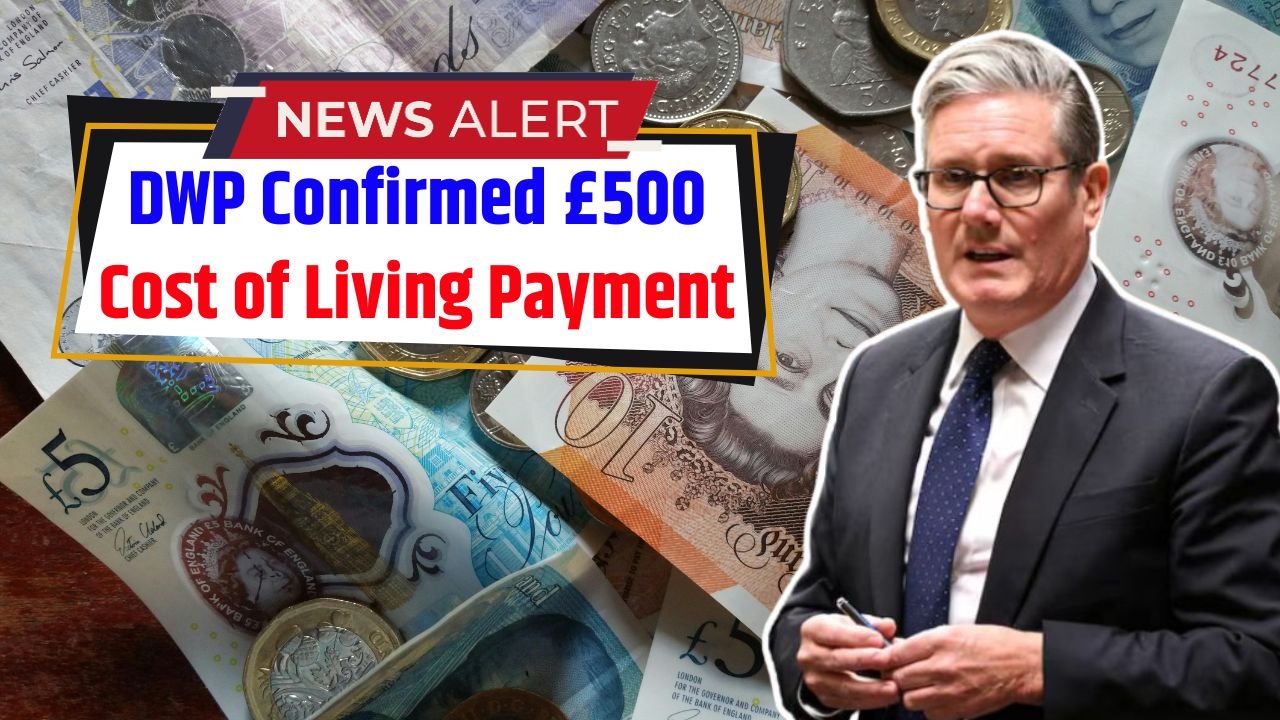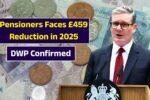Cost of Living Payment 2025: As living costs continue to pressure households across the UK, recent announcements regarding potential Cost of Living Payments have captured widespread attention. With energy bills, grocery prices, and housing costs remaining elevated, millions of families are seeking clarity about additional government support planned for 2025.
The Department for Work and Pensions (DWP) has historically provided crucial financial assistance through Cost of Living Payments during periods of economic strain. These payments have offered vital relief to pensioners, disabled individuals, carers, and low-income families struggling with inflation and rising essential expenses.
Understanding the current status of Cost of Living Payments for 2025 requires examining both the government’s previous support programmes and the latest official communications about future assistance.
Background: Previous Cost of Living Support
The UK government implemented comprehensive Cost of Living Payment schemes between 2022 and 2024, delivering substantial financial support to vulnerable households during a challenging economic period. These payments provided automatic, tax-free assistance directly to eligible benefit recipients without requiring applications.
Historical Payment Structure
Previous Cost of Living Payments included:
- Multiple payments ranging from £299 to £326 for those receiving qualifying benefits
- Additional £150 Disability Cost of Living Payments for disability benefit recipients
- Enhanced Winter Fuel Payments for pensioners, including extra £150-£300 supplements
The payments were distributed in phases throughout each year, timed to coincide with periods of increased household expenses such as winter heating costs and seasonal price increases.
Eligibility Criteria for Previous Schemes
Past Cost of Living Payments reached households receiving:
- Universal Credit
- Pension Credit
- Income Support
- Income-based Jobseeker’s Allowance
- Income-related Employment and Support Allowance
- Child Tax Credit and Working Tax Credit
- Various disability benefits including Personal Independence Payment and Disability Living Allowance
These targeted approaches ensured support reached those most affected by rising costs while providing automatic distribution through existing benefit payment systems.
Current Government Position on 2025 Payments
Official government communications provide clear guidance about Cost of Living Payments for 2025. According to the Department for Work and Pensions and information available through Gov.uk, the official government website, no new Cost of Living Payments are currently planned for 2025.
The government’s Cost of Living Payment programme, which operated successfully between 2022 and 2024, has concluded. This represents a shift from the emergency support measures implemented during periods of particularly acute economic pressure.
Alternative Support Measures
While dedicated Cost of Living Payments are not scheduled for 2025, various forms of government support continue to operate:
- Established benefit programmes including Universal Credit and Pension Credit
- Winter Fuel Payments for eligible pensioners
- Local authority Household Support Fund schemes in many areas
- Energy support programmes including the Warm Home Discount
- Various charitable and emergency assistance programmes
Understanding Benefit Payment Systems
The UK’s social security system provides multiple layers of support for households facing financial difficulties. These established programmes continue to operate independently of the temporary Cost of Living Payment schemes that operated during 2022-2024.
Ongoing Benefit Entitlements
Regular benefit payments continue to provide essential support:
- Universal Credit provides income support and help with housing costs
- Pension Credit ensures minimum income levels for pensioners
- Disability benefits support those with additional needs and care costs
- Housing Benefit assists with accommodation expenses
Payment Timing and Distribution
Government benefits operate on established payment schedules, with most recipients receiving monthly payments on specific dates. These regular payments form the foundation of support for low-income households, supplemented by seasonal programmes like Winter Fuel Payments.
Accessing Current Support Options
Households struggling with living costs can access various forms of assistance through existing programmes and support schemes.
Government Benefits
The benefits system provides comprehensive support for eligible households. Citizens can use the government’s benefits calculator to determine entitlements and apply for appropriate support through official channels.
Local Authority Support
Many councils operate local support schemes funded through various programmes:
- Household Support Fund assistance for essential items
- Council Tax reduction schemes
- Emergency hardship payments
- Food voucher programmes
- Energy bill assistance
Energy Support Programmes
Multiple schemes help with energy costs:
- Warm Home Discount provides annual electricity bill reductions
- Energy supplier trust funds offer grants for those in financial difficulty
- Priority Services Register provides additional support for vulnerable customers
Economic Context and Future Considerations
The UK government continues to monitor economic conditions and their impact on household finances. Policy responses to economic challenges typically involve parliamentary debate and formal announcement processes through official channels.
Inflation and Living Costs
Current economic indicators show varying pressures on household budgets:
- Energy costs remain elevated compared to historical levels
- Food inflation continues to affect grocery expenses
- Housing costs including rent and mortgages impact many families
- Transport and fuel costs fluctuate with global commodity prices
Government Response Mechanisms
When implementing new support measures, the government follows established processes:
- Parliamentary announcement and debate
- Formal policy development and consultation
- Implementation through existing administrative systems
- Communication through official government channels
Support for Vulnerable Groups
Specific support continues for groups facing particular challenges with living costs.
Pensioner Support
Older households receive targeted assistance through:
- State pension payments providing basic income security
- Pension Credit ensuring minimum income levels
- Winter Fuel Payments helping with heating costs
- Free prescriptions and other healthcare support
Disability Support
Those with disabilities and additional needs access:
- Personal Independence Payment for daily living and mobility costs
- Disability Living Allowance for care and mobility needs
- Access to Work schemes supporting employment
- Blue Badge schemes reducing transport costs
Family Support
Families with children benefit from:
- Child Benefit providing regular payments per child
- Free school meals for eligible children
- Childcare support through Universal Credit
- Educational grants and assistance programmes
Future Policy Development
The government’s approach to supporting households with living costs continues to evolve based on economic conditions and policy priorities.
Monitoring and Assessment
Regular review processes examine:
- Household income and expenditure patterns
- The effectiveness of existing support programmes
- Economic forecasts and inflation projections
- Public consultation and stakeholder feedback
Policy Implementation
Any new support measures would follow standard government processes:
- Formal announcement through parliamentary channels
- Detailed eligibility and implementation planning
- Administrative system preparation and testing
- Public communication through official sources
Staying Informed About Government Support
Accurate information about government benefits and support schemes is essential for accessing available assistance and avoiding misinformation.
Official Information Sources
Reliable information comes from:
- Gov.uk website providing comprehensive benefit information
- Direct communication from the DWP and other government departments
- Local authority websites for council-specific support schemes
- Established advice organisations like Citizens Advice
Verification and Fact-Checking
When encountering information about government benefits or support schemes, it’s important to verify claims through official sources. Government announcements about new benefits or payments are always made through formal channels and confirmed on official websites before implementation.





